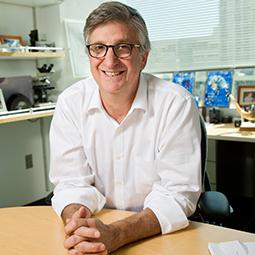A new research initiative at Children’s Hospital Los Angeles, backed by a $2 million grant, emphasizes the many potential applications of precision medicine testing technology in population health
Children’s Hospital Los Angeles recently announced it has been awarded a $2 million grant. These funds will be used to research a new, innovative application of precision medicine technology that uses biologically based screening in relation to history of adverse childhood experiences.
Adverse childhood experiences (ACEs) are recognized by the Centers for Disease Control and Prevention (CDC) as traumatic events in childhood. These include assault, abuse, neglect, economic hardships, witnessing traumatic injuries, or other similar events that may have a lasting negative psychological impact on the child.
While adverse childhood experiences can be psychologically damaging, they can also lead to toxic stress that increases the risk of diseases developing. Toxic stress that develops as a result of adverse childhood experiences can cause developmental delay. It can also increase the risk of mental illness and diseases such as heart disease, diabetes, and cancer.
Early Intervention: Children’s LA Neurogenetics Pursues Health Impact of ACEs

“Excessive adverse childhood experiences can cause toxic stress in children, and many studies have shown this may have lifelong consequences for health challenges, such as cardiovascular disease, obesity and mental illnesses,” said Pat Levitt, PhD, Lead Principal Investigator, Chief Scientific Officer, Vice President and Director of The Saban Research Institute of Children’s Hospital Los Angeles and the Simms/Mann Chair in Developmental Neurogenetics.
“To improve outcomes for these children, we need to identify those at greatest risk as early as possible, because early interventions promote the best outcomes,” stated Levitt as part of the hospital’s announcement.
Screening for adverse childhood experiences is currently difficult. It can require verbal interviews with the pediatric patient and their caregivers. This method of assessment can be unreliable, especially when the child is quite young.
Identifying a child who has experienced an adverse childhood experience also does not provide a strong indication of whether the child will develop toxic stress. Toxic stress is the response that actually increases the risk of health problems. It should be noted that not all children with adverse childhood experiences will develop toxic stress.
New Lab Test Examines Mitochondria Under Stress
The research team at Children’s Hospital Los Angeles will use its grant funding to combine an adverse childhood experience clinical screening questionnaire with a novel laboratory test that examines the mitochondria of cells. Mitochondria are responsible for producing energy in the cells and are vulnerable to disturbances caused by toxic stress, and the biomarker measures mitochondrial allostatic load (MAL). The clinical pathology research aims to show that MAL measures are a “red flag warning” for toxic stress in infants.
“We believe this multi-pronged approach will improve our understanding of the mitochondrial stress associated with ACEs, and will ultimately lead to a cost-effective test that could be readily adopted by pediatricians across the state,” said co-investigator Xiaowu Gai, PhD, Director of Bioinformatics for the Center for Personalized Medicine at Children’s Hospital Los Angeles.
By combining biological testing with existing clinical screening tools, researchers believe they will be able to better identify children who have developed toxic stress in response to an adverse childhood experience. This research is expected to be especially impactful on marginalized communities.
“Early life stress is not equally distributed,” said Principal Investigator Rajan Sonik, PhD, JD, MPH, Director of Research at the AltaMed Institute for Health Equity within AltaMed Health Services. “Social and economic hardships are disproportionately experienced by marginalized communities, leading to critical racial/ethnic disparities. I look forward to working with Children’s Hospital Los Angeles and our community partners to challenge these disparities, close the equity gap and take steps toward a better future for all children and families.”
Precision Medicine Strategies for Hospitals and Health Systems
Mitochondrial dysfunction is being studied in a number of ways in relation to neurodegenerative diseases, neurological disorders, and other elements of health and behavior. Researchers at Children’s Hospital Los Angeles and other health systems will continue to expand and validate the biomarkers.
Studies of mitochondrial changes associated with traumatic experiences alone will lead to new insights and findings that may allow hospitals to better identify at-risk children and provide them with personalized care.
—Caleb Williams
Related Information:
Study aims to improve early screening for adverse childhood experiences by using precision medicine
Children’s Hospital Los Angeles Awarded $2 Million to Address Adverse Childhood Experiences
An energetic view of stress: Focus on mitochondria
Pat Levitt, PhD, Simms/Mann Chair in Developmental Neurogenetics
Xiaowu Gai, PhD, Center for Personalized Medicine
California Initiative to Advance Precision Medicine
Mitochondrial dysfunction in neurodegenerative diseases and drug targets via apoptotic signaling
